About
The Allo website provides a modern, user-friendly dictionary experience for dead ancient languages like Latin and others. The project falls under the auspices of the OMNIKA Foundation, a 501(c)(3) non profit based in Las Vegas, NV. It was created in 2019 and currently provides Allo Latin–which relies on Wheelock's Latin for grammar, the Oxford Latin Dictionary for entries, and other sources for audio files and word frequency data. As of August 30, 2022, the project is still under development.
Source: OMNIKA
Access
External sources
Other works
Manuscript · 2020
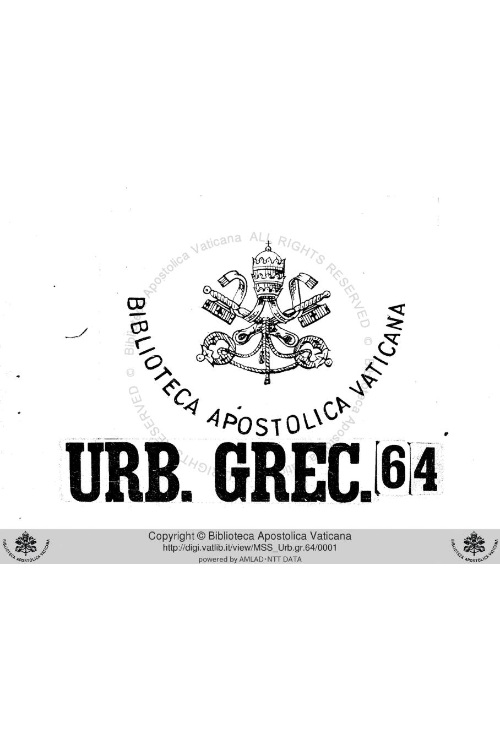
MSS URB.GR.64 is a manuscript at the Vatican Library in Vatican City, Vatican. It contains a medical text attributed to Hippocrates; although, it seems to have been produced between 1100-1199 CE. The manuscript contains a version of the Hippocratic Oath, visible in the form of a cross.
Website · 2019

The OMNIKA website provides a bibliographic index of data related to world mythology that can be quickly searched and trusted for accuracy. The website has four parts: OMNIKA Mythology collects mythological stories, deities, belief systems, and symbols. OMNIKA Museum collects data on artifacts, institutions like museums, and places of interest. OMNIKA Library collects books, journal articles, and other source materials where users can read them using the Reader experience. Finally, OMNIKA Lingua collects data on languages and writing systems. OMNIKA was started in January 2019 and is operated by the OMNIKA Foundation, a 501(c)(3) nonprofit based in Las Vegas, NV.
Website · 2019
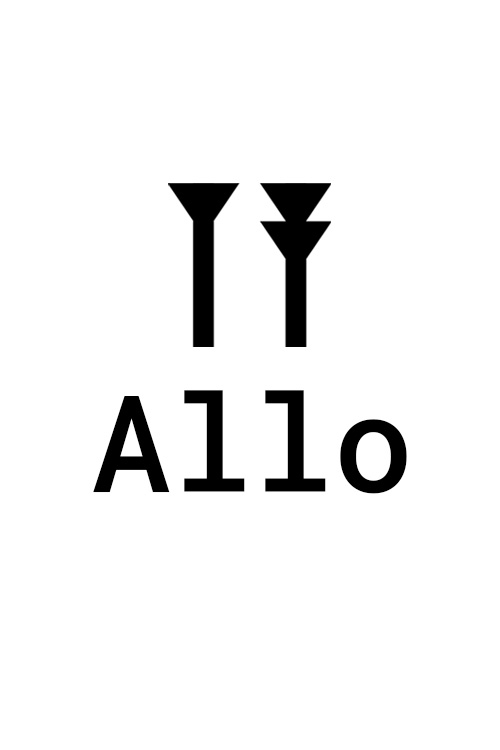
The Allo website provides a modern, user-friendly dictionary experience for dead ancient languages like Latin and others. The project falls under the auspices of the OMNIKA Foundation, a 501(c)(3) non profit based in Las Vegas, NV. It was created in 2019 and currently provides Allo Latin–which relies on Wheelock's Latin for grammar, the Oxford Latin Dictionary for entries, and other sources for audio files and word frequency data. As of August 30, 2022, the project is still under development.
Library works
Book · 1982
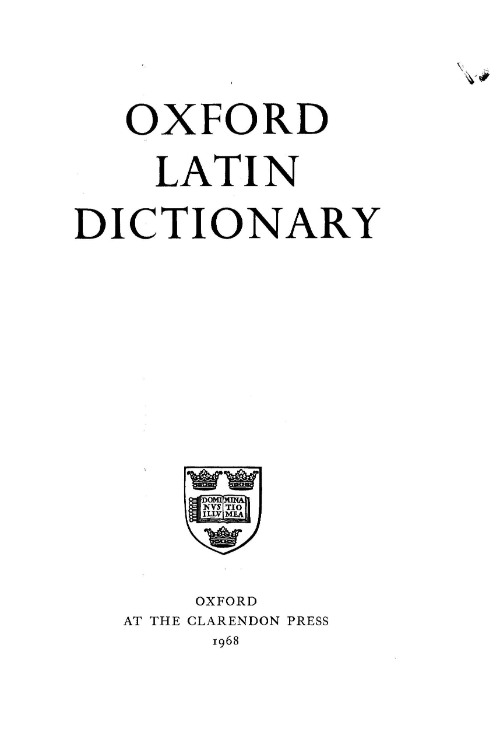
The Oxford Latin Dictionary (OLD) is one of the world's most comprehensive and reputable Latin to English dictionaries. The chief editor of the eight volume publication was Peter G. W. Glare. Eighteen other contributors are listed as supporting editors. The book is 2,126 pages long and contains almost 40,000 terms. It was intended to improve upon the shortcomings of earlier versions. Production of the eight volumes spanned from 1968 until 1982. Several revised editions were released: in 1996 and most recently in 2012.
Book · 1903
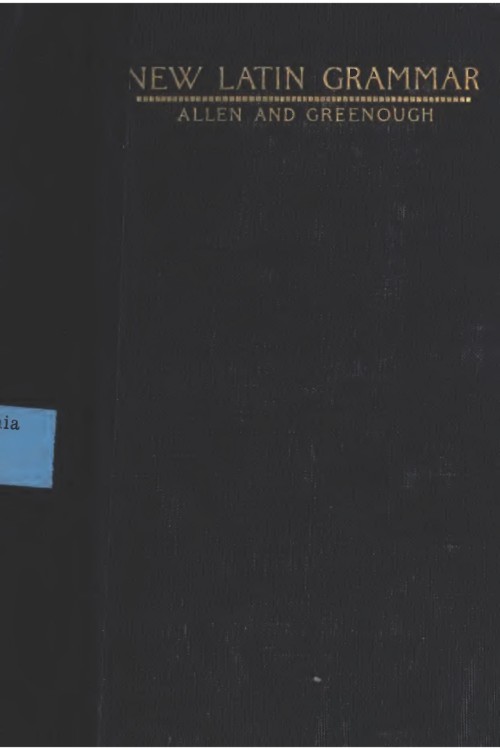
Originally published in 1888, the 1903 version of Allen and Greenough's New Latin Grammar is a Latin grammar book produced by Joseph H. Allen, James B. Greenough, et al. The book contains a comprehensive explanation of the mechanics of the Latin language. It was intended for students studying Latin in their first few years, mainly as a reference manual. Since then, it has become a favorite choice by scholars and students alike, despite being dated. This work is a newly published version of A Latin grammar for schools and colleges, which was produced by Allen and Greenough in 1872.
Book · 2005
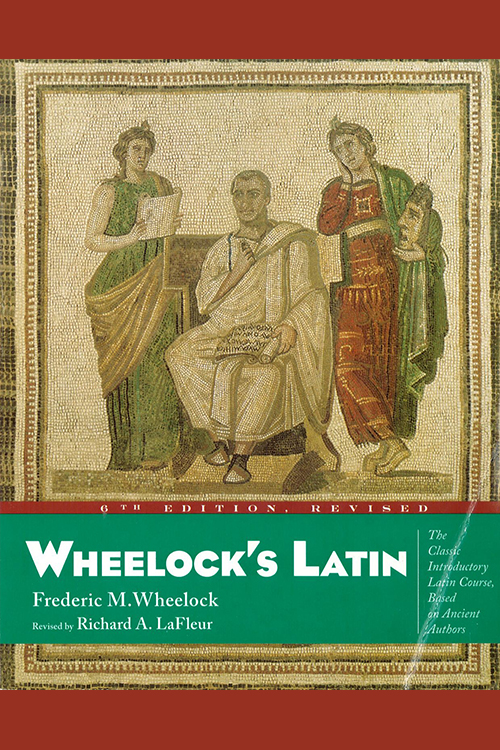
Wheelock's Latin is a comprehensive Latin study textbook written for beginners. The original version was published in 1956 by Frederick M. Wheelock, an American professor who graduated from Harvard University with a Ph.D. Among scholars and students, Wheelock's Latin is considered to be an excellent resource for learning Latin vocabulary and grammar.
Ph.D. dissertation · 1939
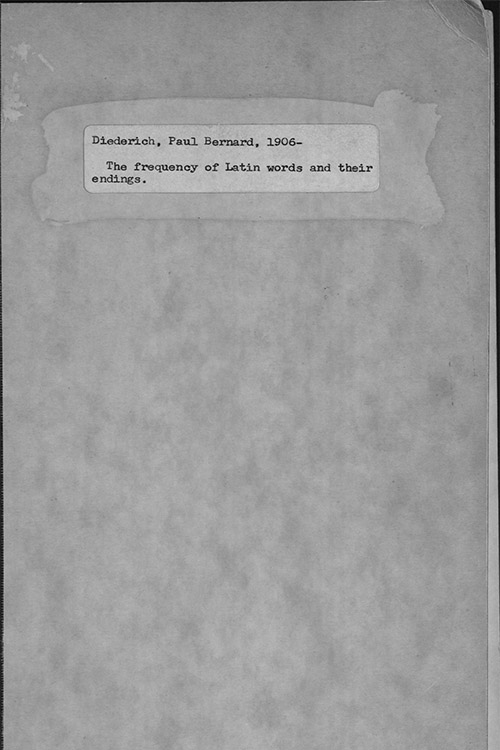
The Frequency of Latin Words and Their Endings is a published Ph.D. dissertation by Paul B. Diederich, released in 1939. Diederich compiled it while studying at Columbia University. The work contains a comprehensive list of Latin words and their frequency in various categories of writing. A list of the three hundred most common Latin words is also included. Since its publication, Diederich's list has been improved upon, especially with the help of computational linguistic techniques.
Book · 1903
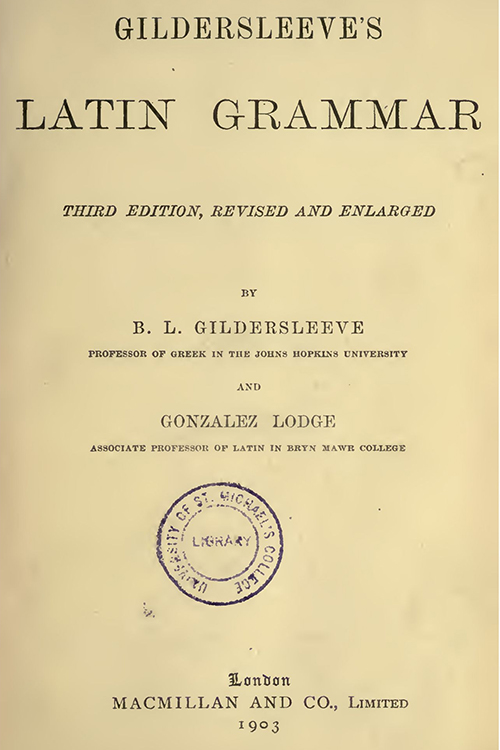
Originally published in 1895, the 1903 version of Gildersleeve's Latin Grammar was produced by Basil L. Gildersleeve and Gonzales Lodge. This book contains the foundational elements of Latin grammar, and is favored by students and scholars alike. Despite being dated, it is still considered an important component of Latin resources. The book contains examples, descriptions, and a thorough bibliography.
Conference paper · 2023
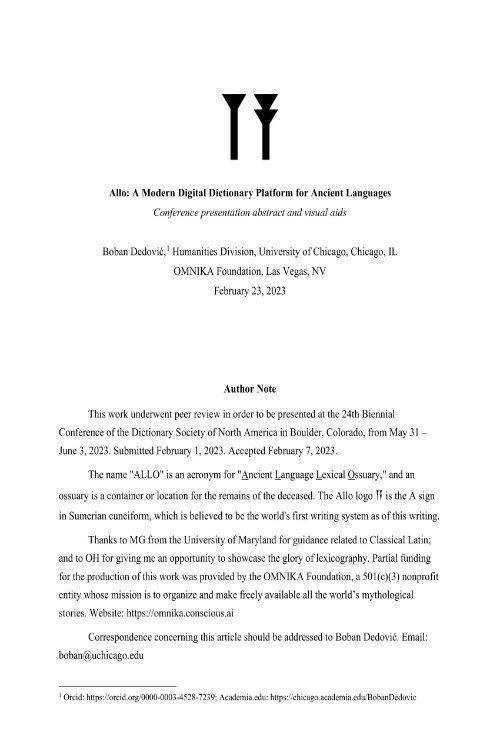
This work is a conference paper by Boban Dedović concerning Allo Latin, a digital tool first presented at the 24th biennial conference of the Dictionary Society of North America in Boulder, CO, May 31 – June 3, 2023.
Book · 1981

Frequency Dictionary and Inverse Index of the Latin Language is a 1981 book originally published in French as Dictionnaire fréquentiel et index inverse de la langue latine. The book was published by the University of Liège's (Liège, Beligum) Laboratoire d'Analyse Statistique des Langues Anciennes, a department focused on doing statistical research on ancient languages. The authors of the publication are Louis Delatte, Suzanne Govaerts, Joseph Denooz, and Etienne Evrard. The 1981 publication, called the "LASLA list," is a benchmark work that provides a list of the most commonly used words in the Latin language, among other information.
Contributor
Cite this work
ChicagoOMNIKA Foundation Contributors. "Allo: A Modern Dictionary for Dead Ancient Languages." Las Vegas, NV: OMNIKA Foundation. Created March 15, 2019. Accessed June 20, 2023. https://ancientlanguages.org.






